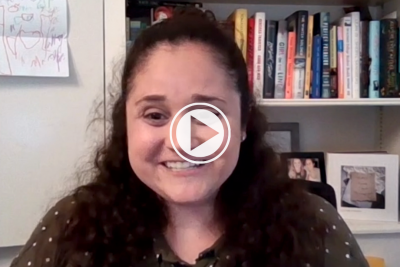“Oh Love! young Love! bound in thy rosy band, Let sage or cynic prattle as he will, These hours, and only these, redeemed Life’s years of ill!”
—Lord Byron
Help your teen understand healthy vs. unhealthy relationships.
We all can probably remember the excitement of young love, the intensity, the thrill, and sometimes the bittersweet ending that seemed to follow shortly after. These ups and downs in teen romances can take us as parents right along on that roller coaster with them. Although the drama of young love can be exhausting, it helps to remember that these fledgling romantic experiences are important developmentally for teens. Early relationships help them figure out their own identities and values. Romantic relationships help teens “practice” being a partner and can help teens learn about themselves as well.
How do we help our teens navigate love relationships (when we may not feel like experts in this ourselves!)? One place to start is teaching them about the basics of healthy versus unhealthy relationships, things to look for, and warning signs to heed.
Basic ingredients for a healthy relationship include safety, respect, honesty, and communication. Your teen should feel supported by their partner and allowed to be completely themselves. In a romantic relationship, just as in any friendship, people should treat each other as equals. Jealousy is a normal feeling, but excessive jealousy and possessiveness can be warning signs. Teens should be encouraged to maintain other interests and relationships and should not be limited from spending time with family and other friends.
What should parents help kids recognize as relationship deal-breakers?
Watch out for signs that a partner is controlling or tries to isolate them. If your child seems to be checking in often with their partner or having to apologize frequently, you may want to pay attention. Any abuse or violence is an absolute red flag. Be aware that abuse can also occur in more subtle forms. For example, pressuring or coercing sexual acts or demanding that the partner dress, look, or act in a certain way.
Seeing your teen in an unhealthy relationship can bring up a lot of strong emotions for parents. Our instinct to protect our child and our anger at the person responsible for hurting them can feel overwhelming. Acting out of those strong emotions can end up backfiring, though. Approaching teens with a conversation can be tough no matter the topic, but the most important outcome of a tough conversation is that your teen feels supported by you and recognizes your concern for them. Aim to listen first and try to understand your teen’s point of view. Let them know that it is not their fault.
Although you will want to do everything you can to get your teen out of an unhealthy relationship, it is usually not helpful to give ultimatums. As much as possible, try to work collaboratively to create a safety plan and trust that your teen knows the best time to leave.
For more information and resources, please visit Love Is Respect.






Comments